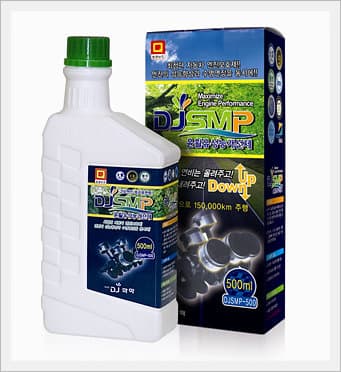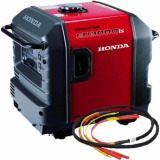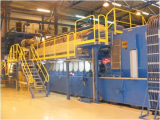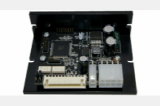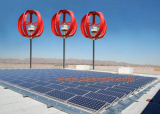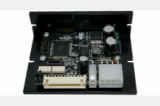Engine Treatment -DJSMP-
Negotiable Min Order Quantity Unit
- Required Quantity
-
- Place of Origin
- Payment Terms
- Negotiable
- Production method
- Negotiable
- Shipping / Lead Time
- Negotiable / Negotiable
- Keyword
- Category
- Other Generators
- Country / Year Established
-
 South Korea
/
South Korea
/
- Business type
- Others
- Verified Certificate
-
15



| Product name | Engine Treatment -DJSMP- | Certification | - |
|---|---|---|---|
| Category | Other Generators | Ingredients | - |
| Keyword | - | Unit Size | - |
| Brand name | - | Unit Weigh | - |
| origin | Stock | - | |
| Supply type | - | HS code | - |
Product Information
Performance and Fundamentals of Operation
The production of DJSMP and DJSMP Oil products are different compared to regular engine oil production. Regular engine oil is produced by combining low molecular weight Chemistry compounds derived from crude oil to Chemistry compounds that maintain a satisfactory level of viscosity. However, DJSMP and DJSMP Oil products are produced from a synthetic lubricant base to become a high pressure resistant, ionic bond synthetic engine oil.
In general, conventional base oil consists of hydrocarbon compound in its natural state and it is derived from crude oil. In order for the form and condition of the conventional base synthetic engine oil to have the best quality appropriate to its purpose, it requires a highly complex production process. Even after going through this complex process, it will result in a mixture of Chemistry compounds both satisfactory and dissatisfactory for the final engine oil product.
There is no method to extract the matter in its optimal form and condition material from this mixture. Even if such method existed, it would not be economically efficient since the output level is minimal.
As a result, the average levels resulting from the final product are the optimal form and condition for conventional base synthetic engine oil products. In other words, the final product consists of both good and bad elements.
The combination of compounds for the production process of both DJSMP and DJSMP Oil additive and engine oil products can be adjusted, and thus, the final product may only contain a single or few chemistry compound(s) with the optimal qualities.
Any type of production process may be used for adding the raw materials. However, sometimes non-petroleum synthesized base oil may contain high quality compounds and unique properties that are found in conventional base oil For example, DJSMP and DJSMP Oil products hold distinct properties that are usually not found in conventional base oil products miscibility with water and inflammability.
In particular, one of the great advantages that DJSMP and DJSMP Oil holds is that it has a high viscosity index compared to conventional base oil products. The illustration below shows the appropriate temperature levels for conventional base oil products and various synthesized compound base oil.

Inimitable 9 merits of DJSMP(When injecting into engine oil for vehicles)
- 3-5times increase in the expected life span of engine due to its excellent abrasion inhibitory action
- More than 30 times increase in the expected life span of engine oil by prevention of producing the impurities
- Increase of engine power by decreasing the coefficient of friction to 1/100 of it (high speed on uphill roads, and pass)
- Prevention of overheating in summer on long uphill road turning on an air conditioner
- Excellent start-up(warm-up is unnecessary to in particular LPG vehicles) in spite of severe cold in winter(40 degrees below)
- Contribute to environmental conservation by the decrease of exhaust gas to 50~70% (provided, except cars with outworn plunger and nozzle)
- Economic effect due to positive reduction of fuel (10~25% improvement in fuel efficiency)
- Pleasant ride thanks to the decrease of engine noise
- Decrease of drivers' fatigue due to its soft covering
Economic effects of DJSMP
- Reduction of oil exchange cost because of the increased period of oil use more than 50 times
- Extension of equipment durability due to excellent lubricant effect
- Economy in fuel & oil cost by fuel saving effect
- Reduction of maintenance cost due to significant decrease of engine and gear abrasion
- Extension of exchange period for other replacement parts
- Reduction of exhaust
Environmental effects of DJSMP
- Contribute to environmental protection thanks to the decrease of waste oil
- Decrease of air pollution thanks to the reduction of exhaust
- Decrease of environmental pollution thanks to the extension of exchange period of replacement parts
DJSMP's scope of application
- Vehicle - Engine, Manual transmission, Power steering, Differential gear
- Vessel - Diesel engine
- Industrial Equipments - Diesel engine, Compressor, Gear box, Reducer, Generator, Cylinder press, Spinner, Hydraulic system, Quarry machine
- Military Equipments - Tank engine, Armored car, Panzer and all kinds of vehicle engine.
Instructions for proper usage of DJSMP
In order to properly and effectively utilize DJSMP, you will need to follow the following steps.
First, the carbon sludge and other debris that have been accumulated within the engine must be removed and cleaned so that DJSMP can effectively function as a coating and ionically bond inside the engine.
Even if the engine is cleaned out with regular flushing oil it would be impossible to remove 100% of the sludge and debris. Thus, it would require some time for the DJSMP to ionically bon with the inner metal part of the engine.
Similar to how the negative and positive sides of a magnet attract each other, the force created by the bond between the positive ions within the engine and the negative ions of DJSMP will remove any remaining sludge or debris and a detergent dispersant reaction(release of solid sludge in its gaseous form) will protect the engine.
Even going through this process, the remaining sludge and debris may form a clod and further create noise within the engine from time to time.
For this reason, we recommend that the oil filter be exchanged after traveling a distance of 4,000~5,000km after first injecting Super Miracle+. After that, the oil filter should be exchanged after every 20,000~30,000km.
The appropriate amount is about 10%~15% of the engine oil
Furthermore, for the replenishment of naturally consumed engine oil due to the engine heat, we recommend the use of DJSMP Oil as previously described above.

Comparative test of abrasion
The abrasion test shows abrasion weight of the abrasion sample with pressure of 100~500kg according to the used lubricants is as follows.
According to the results, the ordinary lubricant without DJSMP over the pressure of 200kg began to have severe noise and the motor was ceased at the pressure of 300kg. Also, in case of engine coating oil, the turn was relatively good without major difficulties until the pressure of 300kg. But from the pressure of 400kg the noise became severe and the motor was ceased at the pressure of 500kg.
On the other hand, the ordinary lubricant with DJSMP showed smooth turn without significant change in noise and the weight of abrasion of the pressure of 500kg.
| (Table) Difference of abrasion by the used lubricant(with the load of 100kg) | ||||
|
Type
|
Measurement
|
Weight before
measurement(g) |
Weight after
measurement(g) |
Worn weight(g)
|
|
Ordinary
lubricant |
Average measurement of 5 times
|
24.492
|
24.87
|
0.122
|
|
Ordinary engine
coating oil |
Average measurement of 5 times
|
24.870
|
24.764
|
0.106
|
|
DJSMP
|
Average measurement of 5 times
|
24.888
|
24.791
|
0.077
|
| (Table) Difference of abrasion by the used lubricant(with the load of 200kg) | ||||
|
Type
|
Measurement
|
Weight before
measurement(g) |
Weight after
measurement(g) |
Worn weight(g)
|
|
Ordinary
lubricant |
Average measurement of 5 times
|
24.838
|
24.514
|
0.324
|
|
Ordinary engine
coating oil |
Average measurement of 5 times
|
24.894
|
24.714
|
0.184
|
|
DJSMP
|
Average measurement of 5 times
|
25.148
|
25.065
|
0.083
|
| (Table) Difference of abrasion by the used lubricant(with the load of 300kg) | ||||
|
Type
|
Measurement
|
Weight before
measurement(g) |
Weight after
measurement(g) |
Worn weight(g)
|
|
Ordinary
lubricant |
Average measurement of 5 times
|
Motor stop
|
||
|
Ordinary engine
coating oil |
Average measurement of 5 times
|
25.058
|
24.780
|
0.278
|
|
DJSMP
|
Average measurement of 5 times
|
25.040
|
24.953
|
0.087
|
| (Table) Difference of abrasion by the used lubricant(with the load of 400kg) | ||||
|
Type
|
Measurement
|
Weight before
measurement(g) |
Weight after
measurement(g) |
Worn weight(g)
|
|
Ordinary
lubricant |
Average measurement of 5 times
|
Motor stop
|
||
|
Ordinary engine
coating oil |
Average measurement of 5 times
|
24.968
|
24.560
|
0.408
|
|
DJSMP
|
Average measurement of 5 times
|
24.928
|
24.833
|
0.095
|
| (Table) Difference of abrasion by the used lubricant(with the load of 500kg) | ||||
|
Type
|
Measurement
|
Weight before
measurement(g) |
Weight after
measurement(g) |
Worn weight(g)
|
|
Ordinary
lubricant |
Average measurement of 5 times
|
Motor stop
|
||
|
Ordinary engine
coating oil |
Average measurement of 5 times
|
Motor stop
|
||
|
DJSMP
|
Average measurement of 5 times
|
25.007
|
24.909
|
0.098
|
Comparative test of frictional resistance
After manufacturing pressure - friction meter measuring relationship between load and pressure that displays friction resistance causing friction to sample for measuring abrasion and rotator, load according to pressure was measured. The results are as follows.
| (Table)Difference of load by used lubricant | ||||||
|
Given power to the point of application(kg)
|
100
|
200
|
300
|
400
|
500
|
|
|
Item
|
Measurement
|
Results(Unit : A)
|
||||
|
Ordinary
lubricant |
Average measurement of 5 times
|
2.94
|
3.62
|
5.22
|
7.52
|
infinite
|
|
Ordinary engine coating oil
|
Average measurement of 5 times
|
2.80
|
3.40
|
4.68
|
6.52
|
infinite
|
|
DJSMP
|
Average measurement of 5 times
|
2.64
|
2.84
|
3.24
|
3.86
|
4.66
|
|
*In case of infinite, the motor ceases the operation. It got over 10A
|
||||||
As shown in the table, when the pressure of 100kg is given, the load by frictional resistance doesn't show significant difference in ordinary lubricant, engine coating, or lubricant with DJSMP. But it was impossible to measure the load since as the given pressure grew up, the gap of the load began to grow, and motor was stopped with both ordinary lubricant an engine coating at the pressure of 500kg.
On the other hand, in case of the lubricant with DJSMP, the load of 4.66A was able to be measured without the cease of motor in spite of the pressure of 500kg, It means that the engine can work properly even under the condition of high temperature and extreme pressure.
In the above test, the lubricant with DJSMP is the same one of the ordinary lubricant which was used to the test.
Test of the improvement in fuel efficiency
1. 1,500~2,000CC compact car(Gasoline)
|
Test
|
1st
|
2nc
|
3rd
|
4th
|
5th
|
6th
|
7th
|
8th
|
9th
|
10th
|
Average
|
|
Before
using (km/L) |
13.45
|
13.32
|
13.27
|
13.74
|
13.66
|
13.34
|
13.44
|
13.67
|
13.63
|
13.37
|
13.489
|
|
After
using (km/L) |
16.67
|
16.61
|
16.73
|
16.89
|
16.62
|
16.76
|
16.53
|
16.77
|
16.74
|
16.59
|
16.691
|
|
Improvement in fuel efficiency : 23.74%
|
Improvement in the distance covered : +3.202km/L
|
||||||||||
2. Above 2,000CC passenger car(Diesel)
|
Test
|
1st
|
2nc
|
3rd
|
4th
|
5th
|
6th
|
7th
|
8th
|
9th
|
10th
|
Average
|
|
Before
using (km/L) |
10.42
|
10.37
|
10.22
|
10.54
|
10.47
|
10.32
|
10.47
|
10.57
|
10.72
|
10.35
|
10.445
|
|
After
using (km/L) |
13.24
|
13.65
|
13.97
|
13.89
|
13.25
|
13.67
|
13.53
|
13.48
|
12.88
|
13.42
|
13.498
|
|
Improvement in fuel efficiency : 29.23%
|
Improvement in the distance covered : +3.053km/L
|
||||||||||
The others.
-Above 2,000CC car(Gasoline)
Improvement in fuel efficiency : 27.76%, improvement in the distance covered : +2.692km/L
-Above 2,000CC car(LPG)
Improvement in fuel efficiency : 29.14%, improvement in the distance covered : +2.759km/L
B2B Trade
| Price (FOB) | Negotiable | transportation | - |
|---|---|---|---|
| MOQ | Negotiable | Leadtime | Negotiable |
| Payment Options | Negotiable | Shipping time | Negotiable |


































